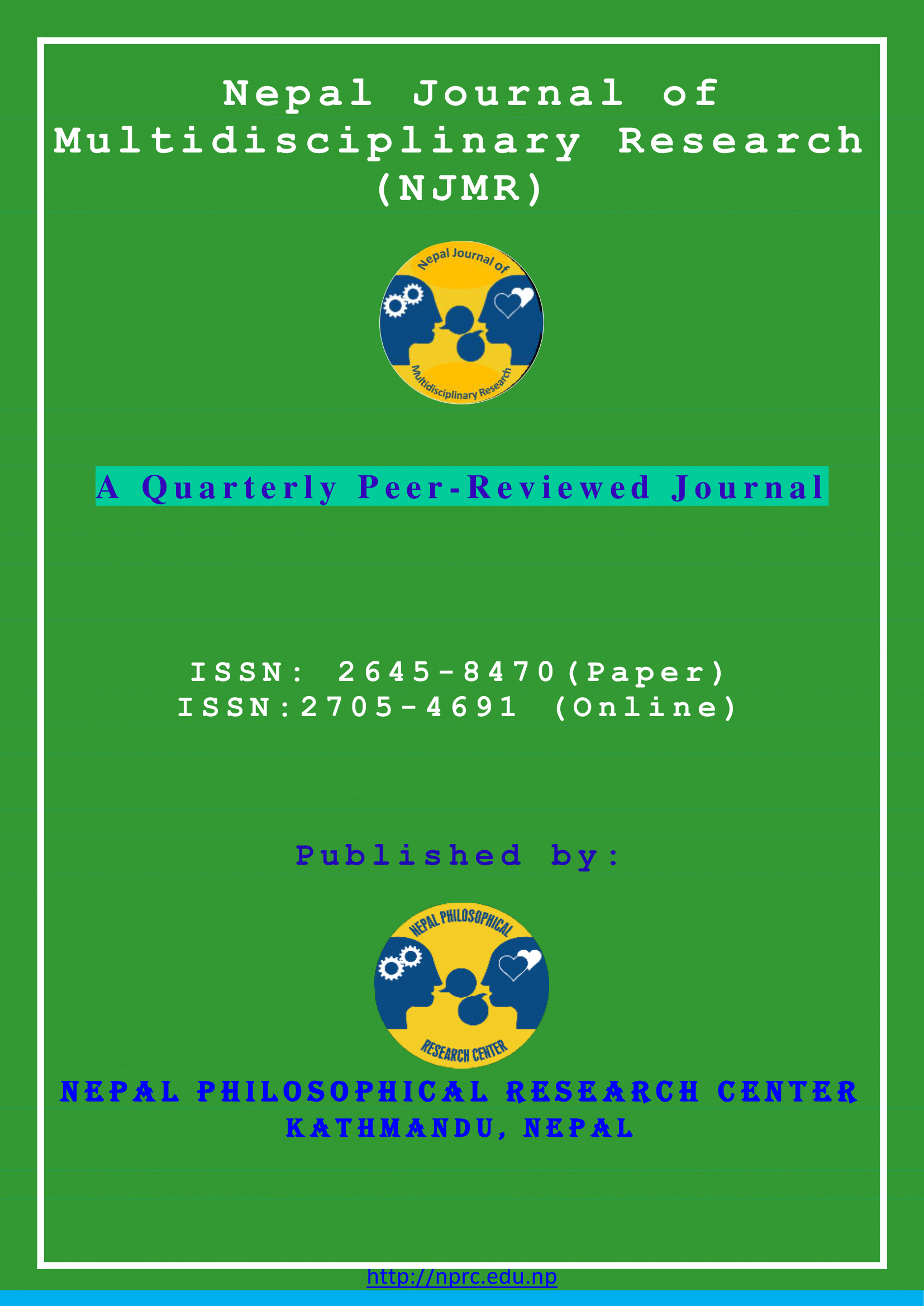Transformational Leadership Approaches in a Community School: A Case Study
DOI:
https://doi.org/10.3126/njmr.v3i3.34890Keywords:
better performance, community schools, Principal, transformational leadership, practices, stakeholdersAbstract
Transformational leadership approaches help organization to reform and move toward a new horizon and also adds new bricks for the betterment in a competitive world. The principal who is guided and followed by transformational leadership approaches, is able to lead organization in effective way. Moreover, leader who embraced transformational leadership know how to engaged its stakeholders for the betterment of the organization. The research question “How has the school principal been a case for exemplary transformational leader?” is used as a guideline for the research process. In the area of transformational leadership practice at community school of Nepal, there has been only a few research studies. Its purpose is to explore transformational leadership practice in a community school. Single case study method is used to explore the strength and challenges experienced by the principal who embraced transformational leadership. One principal from better performance community school of Chitwan was taken as research participant where interviews are done and meaning is withdrawn. The result of the study is based on the principal’s experience regarding the betterment of the school in an ever-changing, complex with competitive educational environment. The transformational leadership theory supports this study. The result shows that those school leaders who practice transformational leadership approach got succeed in transforming the school and are able to change all the challenges and problems into opportunities for the school.
Downloads
Downloads
Published
How to Cite
Issue
Section
License
This license enables reusers to distribute, remix, adapt, and build upon the material in any medium or format for noncommercial purposes only, and only so long as attribution is given to the creator.




